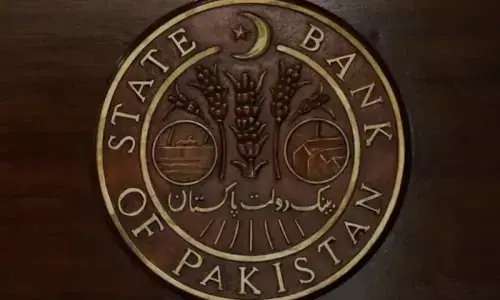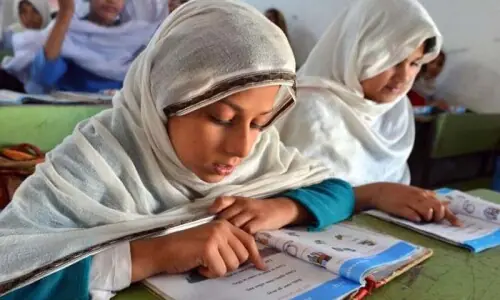“THERE are a handful of miscreants, and we will sort them out in no time,” thundered Gen Yahya Khan. The date was March 24 1971, the occasion the launching of a crackdown against the Awami League and its supporters. A foreign correspondent asked how many of these 'miscreants' were there.
Before Yahya Khan could reply, a colleague whispered in the correspondent's ear, “only four and half crores [45 million]”.
This was no joke. The crackdown soon transformed into a full-fledged military action against Bengalis, killing hundreds of thousands of innocent people. With a few exceptions, no one from the western wing raised a protesting voice. The Bengalis, who had once been at the forefront of the Pakistan Movement and were more in number than the West Pakistanis, were ultimately declared secessionists and pushed out of the federation. It was a unique case of its own kind, a minority declaring a majority secessionists.
Pakistan is an interesting country in many ways. At one time or another in its history, large chunks of its population have been declared either 'anti-state', 'secessionist', 'miscreant', 'terrorist', 'militant' or 'extremist' by its own rulers. It is also interesting that while the population of one province or a political party is so declared, others watch in silence or enjoy their chagrin.
Treason factories started working right in 1947, when a freedom fighter like Khan Abdul Ghaffar Khan was declared 'anti-state'. Soon after, hundreds of Khudai Khidmatgars were brutally killed at Bhabhra. In the mid-1950s, the United Front government of East Pakistan which had defeated the Muslim League by a landslide, was not allowed to function properly and was ultimately dismissed on flimsy charges. Maulvi Fazlul Haq, who had presented the Pakistan Resolution on March 23, 1940 was declared a 'traitor'.
The people of Balochistan and their leaders have been the most unfortunate. Starting with a forced merger of Kalat with Pakistan, they have repeatedly faced the wrath of the Pakistan establishment. Ayub Khan, Zulfikar Ali Bhutto and Pervez Musharraf each in turn declared the Baloch nationalist leaders enemies of Pakistan and either imprisoned or killed them. Thousands of Marri, Bugti and Mengal tribesmen had to flee the country to save their lives. Many of them died in exile in miserable conditions.
Next it was the turn of rural Sindh to face the might of the state. The 1977 coup led by Gen Ziaul Haq and the 'judicial murder' of Zulfikar Ali Bhutto in 1979 had hurt the sentiments of the Sindhi population and most of them felt alienated from the state. In 1984 they found a chance to express their bitterness through the MRD movement which was suppressed with brute force. Urban Sindh, which did not support the MRD movement, but observed the torture and merciless killing of rural Sindhis from the sidelines, was next in line.
In 1991 the army chief declared the MQM a 'terrorist' organisation and launched a crackdown against it. The circle was now complete. Except for Punjab, people from all the other provinces had either been declared traitors or terrorists, or both.
It must be said to the credit of ordinary Pakistanis that in spite of all exploitation, suppression, coercion, intimidation, subversion, torture, imprisonment and rigged elections (Arundhati Roy's words describing the
situation in Jammu and Kashmir), they showed resilience and bounced back every time whether it was separation of East Pakistan, military action in Balochistan or the reign of terror in Karachi.
Pakistan had many basic problems, but till the early 1980s it remained a peaceful country by and large. There was no religious, sectarian or ethnic violence and people were going to their mosques, imambargahs, temples, churches, schools and colleges without any fear. Streets were safe and the display of arms very rare. But things started changing when with Saudi money and American armament Pakistan found itself at the forefront of the war against Soviet Russia. Similarly, in order to stop the increasing influence of the revolution in Shia Iran, militant Wahabi Islam was promoted as a matter of state policy.
Now for the first time we saw the state, which so far had been fighting against 'miscreants', and 'extremists', producing, patronising protecting promoting and arming its own brand of militants calling them 'jihadis' or 'mujahideen'. Of course they were fighting a holy war in Afghanistan and Kashmir but its natural consequence was the rise of obscurantism and fanaticism in Pakistan.
At that time perceptive observers had warned that once the Afghan war was over, Pakistan would have to bear the backlash. Fears of brutalisation of society were also expressed. But all sane advice went unheeded. Things could still be controlled if Pakistan's military junta had extricated itself from the Afghan quagmire after the Soviet withdrawal. But unfortunately, this development gave new ideas to Pakistan's ruling class. Now they started talking about 'strategic depth' and a puppet government in Afghanistan to safeguard Pakistan's interests on a permanent basis.
The Mujahideen/Taliban were seen by the army as the country's second line of defence on its western frontier. Some hawks also started talking of the 'revival of the glory of Islam' by establishing a medieval theocratic state in Afghanistan.
However, 9/11 changed the whole scenario and the Americans asked Pakistan to take a 180-degree turn. On the surface, Gen Musharraf accepted US dictation but the army continued with its Afghan policy while taking only superficial actions against the Taliban for the world's consumption.
Fast forward to 2008. An operation which started in South Waziristan against 'foreign' militants some years back, has gradually engulfed almost half of the Frontier province. Now no one knows who is fighting whom and for what purpose. The list of militant groups is daunting. We have the Al Qaeda, Afghan Taliban, Tehrik-i-Taliban Pakistan, Lashkar-i-Islam and leaders like Sufi Mohammad, Baitullah Mehsud and Mangal Bagh to name just a few.
In Kurram Agency two tribes are fighting against each other (the ISPR spokesperson is shy of calling them Shias and Sunnis). In Balochistan a low-level insurgency is going on against state coercion. While all this continues, nobody can distinguish the ISI creations from the genuine militants. Indira Gandhi had one Bhindranwale, but the Pakistan Army has many in its cupboard.
The problem is that for our military high command, their narrow institutional interests come first, and most of the time they equate their interests with national interests. But now we are facing a catch-22 situation. On the one hand, the Pakistani Army has neither the capacity nor the willingness to fight an all-out war against the militants, and on the other, it is not ready to allow the civilian government to take control of the Afghan policy. Will it be too much to expect that it will learn from its past mistakes and develop a national consensus before it is too late?






























